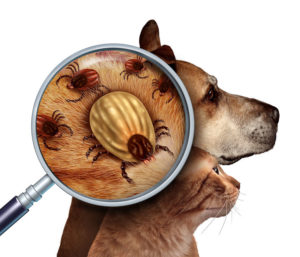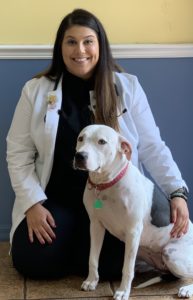Behavioral Changes that Point to Physical Health Issues
 Did you know that your pet is talking to you all the time? You may not always be able to understand them, but your pet knows what they need, and they will try to tell you as their caregiver. If you write off their behavior as quirkiness, you might be putting off an important health issue. Here are some behavioral changes that will tell you that you need to take your pet to the vet.
Did you know that your pet is talking to you all the time? You may not always be able to understand them, but your pet knows what they need, and they will try to tell you as their caregiver. If you write off their behavior as quirkiness, you might be putting off an important health issue. Here are some behavioral changes that will tell you that you need to take your pet to the vet.
Changes in eating habits
Is your pet suddenly refusing to eat? Pets do get bored with their food, and sometimes they will refuse to eat because they miss one of their humans or other emotional distress. But often your pet’s refusal to eat their food has more to do with their stomach and potential digestive problems. You should get your pet checked out any time their appetite changes. Read more

 You love your pet, and you want them to lead a long, healthy life. If you want to keep your dog or cat around as long as possible, you should make their health and wellness one of your top priorities, but how often does your pet really need to go to the vet? What shots do they need and when? Here’s what you need to know.
You love your pet, and you want them to lead a long, healthy life. If you want to keep your dog or cat around as long as possible, you should make their health and wellness one of your top priorities, but how often does your pet really need to go to the vet? What shots do they need and when? Here’s what you need to know. If you like to take your pet camping with you, you need to take some additional precautions against fleas and ticks. The methods you use for flea and tick prevention at home may not be sufficient to prevent ticks while camping in the woods, where ticks are everywhere. There are some very good ways that you can help protect your pet from ticks.
If you like to take your pet camping with you, you need to take some additional precautions against fleas and ticks. The methods you use for flea and tick prevention at home may not be sufficient to prevent ticks while camping in the woods, where ticks are everywhere. There are some very good ways that you can help protect your pet from ticks. More and more people are becoming eco-conscious and looking for ways to cut chemicals out of their lives. The truth is that fleas have been a problem for millennia, and the chemical combinations most often used today are less than a century old. Do you think the people of the past just put up with them? There are a lot of natural home remedies for fleas, but thanks to eco-friendly manufacturers there are also some great products that take out the guesswork. Here are some options.
More and more people are becoming eco-conscious and looking for ways to cut chemicals out of their lives. The truth is that fleas have been a problem for millennia, and the chemical combinations most often used today are less than a century old. Do you think the people of the past just put up with them? There are a lot of natural home remedies for fleas, but thanks to eco-friendly manufacturers there are also some great products that take out the guesswork. Here are some options. Most pet parents know that they need to worry about making sure that their pet is healthy, including being worm free, yet many pets are unprotected against heartworms. There are some important things that you should know about heartworm disease, which should open your eyes as to how necessary heartworm prevention is.
Most pet parents know that they need to worry about making sure that their pet is healthy, including being worm free, yet many pets are unprotected against heartworms. There are some important things that you should know about heartworm disease, which should open your eyes as to how necessary heartworm prevention is. Spring is here, and with the warmer weather comes the fleas. It happens every year, and it will continue to do so. If you want to be able to protect your pet from fleas, you’ll need to make sure that you are using a reliable flea preventative treatment.
Spring is here, and with the warmer weather comes the fleas. It happens every year, and it will continue to do so. If you want to be able to protect your pet from fleas, you’ll need to make sure that you are using a reliable flea preventative treatment.


